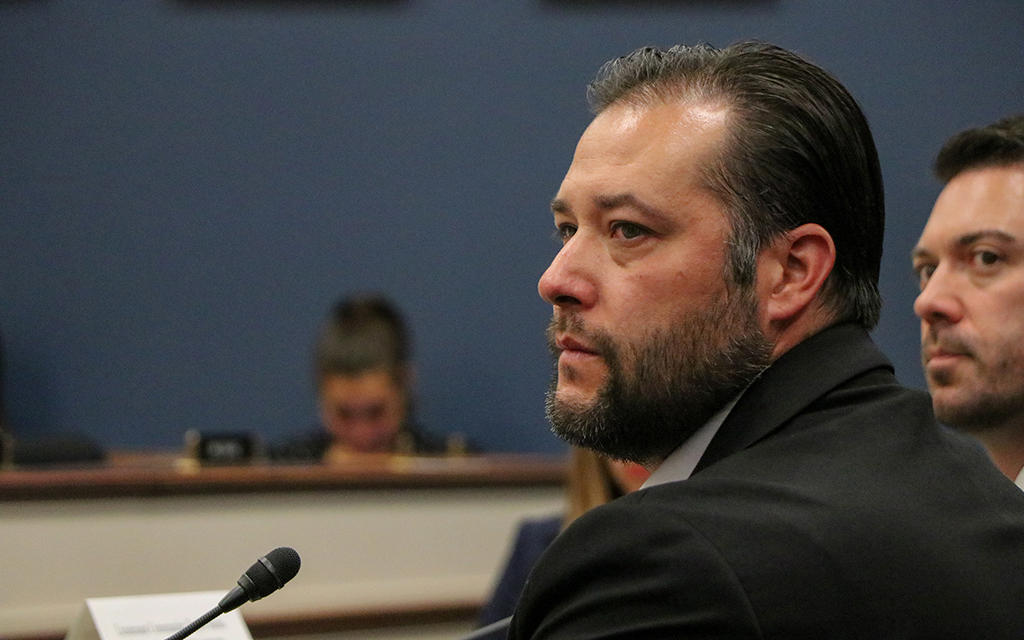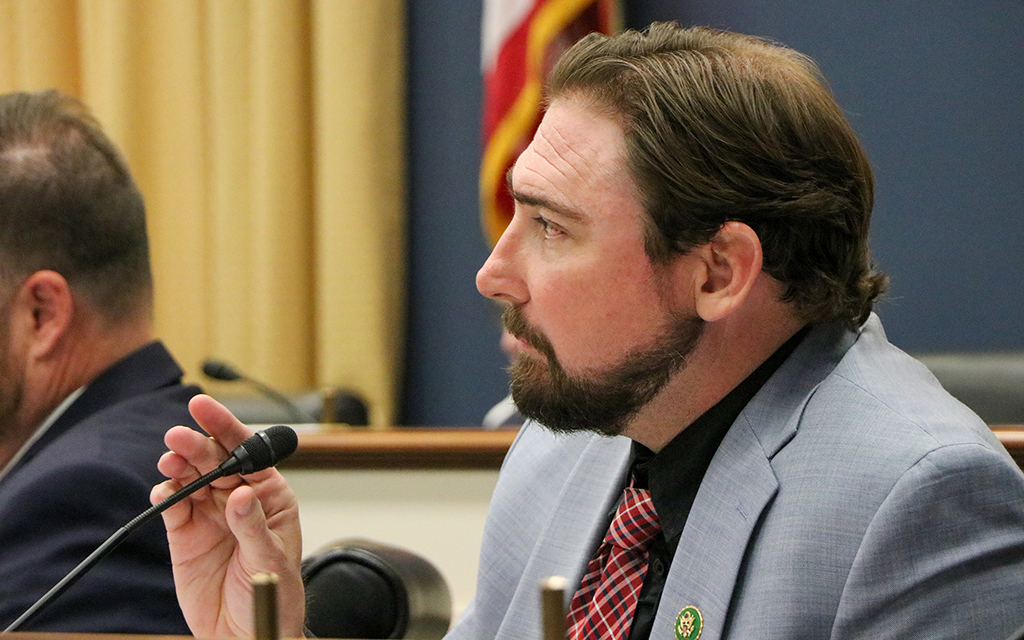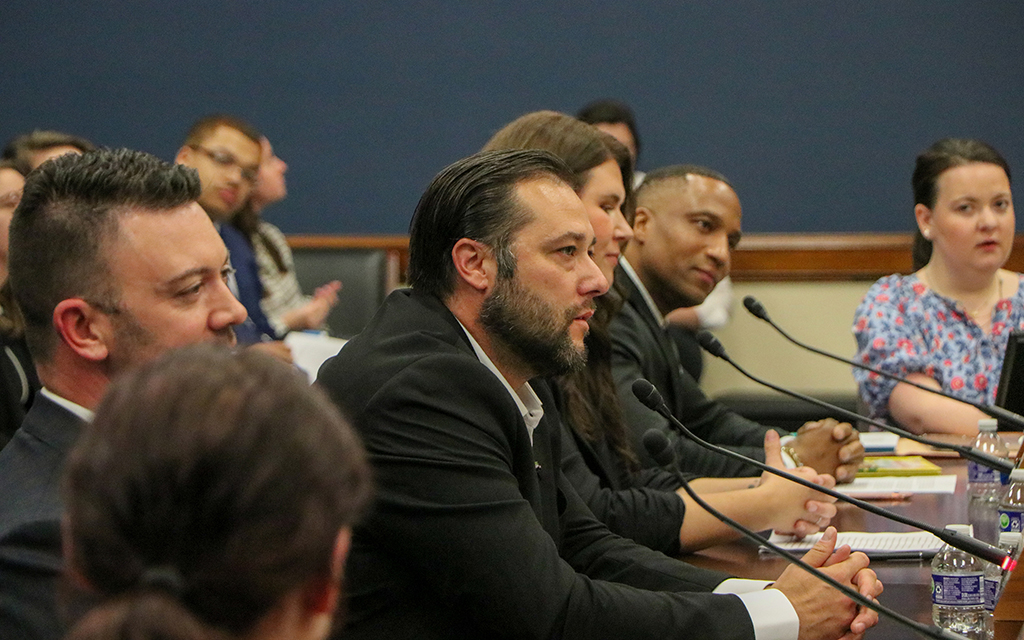WASHINGTON – An Arizona veteran who started a string of Prescott businesses after his military service ended told lawmakers Wednesday that reducing barriers and streamlining federal loan applications are essential to helping other vets become business owners.
“While we appreciate the well-intentioned government programs such as the Small Business Administration and the Office of Veterans Business Development, it is disheartening to find that these programs often present barriers, red tape and bureaucratic hurdles when seeking assistance,” said Grant Quezada, owner of Founding Fathers Collective.
Quezada’s comments to the House Small Business Committee hearing were echoed by other veterans on the panel as well as by most members of the committee, who asked how the SBA and other agencies can better serve vets looking to transition into the world of business.
But Rep. Eli Crane, R-Oro Valley, took a different approach, going down the line of witnesses and asking each if they were “impressed by the efficiency of the federal government.” Most said no, and one said it could be better.
Crane, a self-proclaimed “champion for veteran entrepreneurs,” shifted the questions from how the SBA can be modified to better support veterans to whether the federal government should even be in the business of making small-business loans.

Founding Fathers Collective owner Grant Quezada, an Army veteran living in Prescott, said he and other vets appreciate the efforts of the Small Business Administration but find the red tape “disheartening.” (Photo by Lillie Boudreaux/Cronkite News)
“I want to keep pushing back on this committee that thinks we’re going to do a good job loaning money to veterans or to anybody else because you know what – this town doesn’t do a good job of loaning money to anybody,” Crane said.
Tales of government bureaucracy were a theme of the hearing. Many of the veterans, like Quezada, said they worked months to get approved for government funding but ended up turning to private equity.
“The local regional bankers are not as adept at working within the construct of the SBA, so normally the help we had to find was being pushed down to Phoenix and some of the larger banks down there,” said Quezada, a former Army Ranger.
After 10 months of searching for capital in Phoenix and Scottsdale and the help of a former military friend with financial sector experience, Quezada said he was finally able to secure $4.5 million in loan funding for the collective. He attributed his success to support from other veteran business owners.
Quezada said he did not use either of the SBA’s most popular loan programs, the 7A loan and the 504 loan, an experience shared by another veteran who was testifying.
“Our success is with private equity,” said Taylor Burks, a former Navy lieutenant commander who now serves as president of Rost Landscaping in Missouri. “I think the SBA loan programs are a little bit of a mirage sometimes, especially if you have something that can be a meaningful business idea, like Sgt. Quezada’s concept.”
All the business owners said the SBA veteran support program Boots to Business helped in their transition from service members to entrepreneurs. But they all reported struggling to access the capital and credit needed to grow their small businesses.
“The main barrier, and I believe we all understand that, is access to capital for any veteran from the ideation stage to launching an idea,” said Michael Hyacinthe, a former Navy petty officer turned CEO and founder of Wimage, a visualization-based app.
Quezada said he ultimately found business success when sought out individuals in the private sector who were further up the business chain than he was. Once Founding Fathers was off the ground, he said, he was able to use federal government funding through local grant organization Northern Arizona Council of Governments to maintain the operation,
He said he does not think those working in the SBA are speaking the same language as veteran small-business owners.
“The person on the other side who might be trying to help, they just don’t understand the pitfalls of what we’re facing or the urgency,” Quezada said. “If veterans had the ability to tap into their G.I. bill and apply that to a business venture as they leave the military, I think that’s a phenomenal way to set them up for success.”
But Crane said after the hearing that he thinks the small-business owners on Wednesday’s panel, and Americans in general, would best be served if the federal government stayed out of small business funding.
“I don’t think that this town, and the SBA, should have a heavy hand in, you know, funding small businesses,” he said. “I really don’t. I think limited government is a good thing.”




